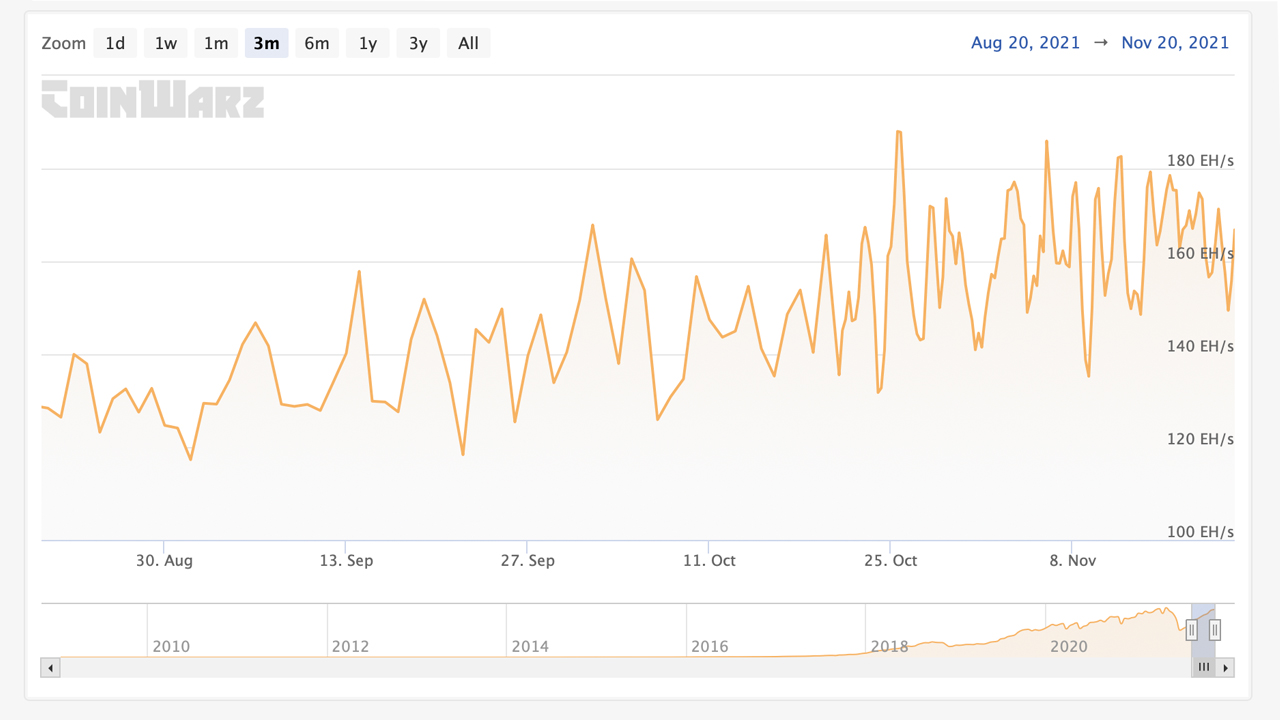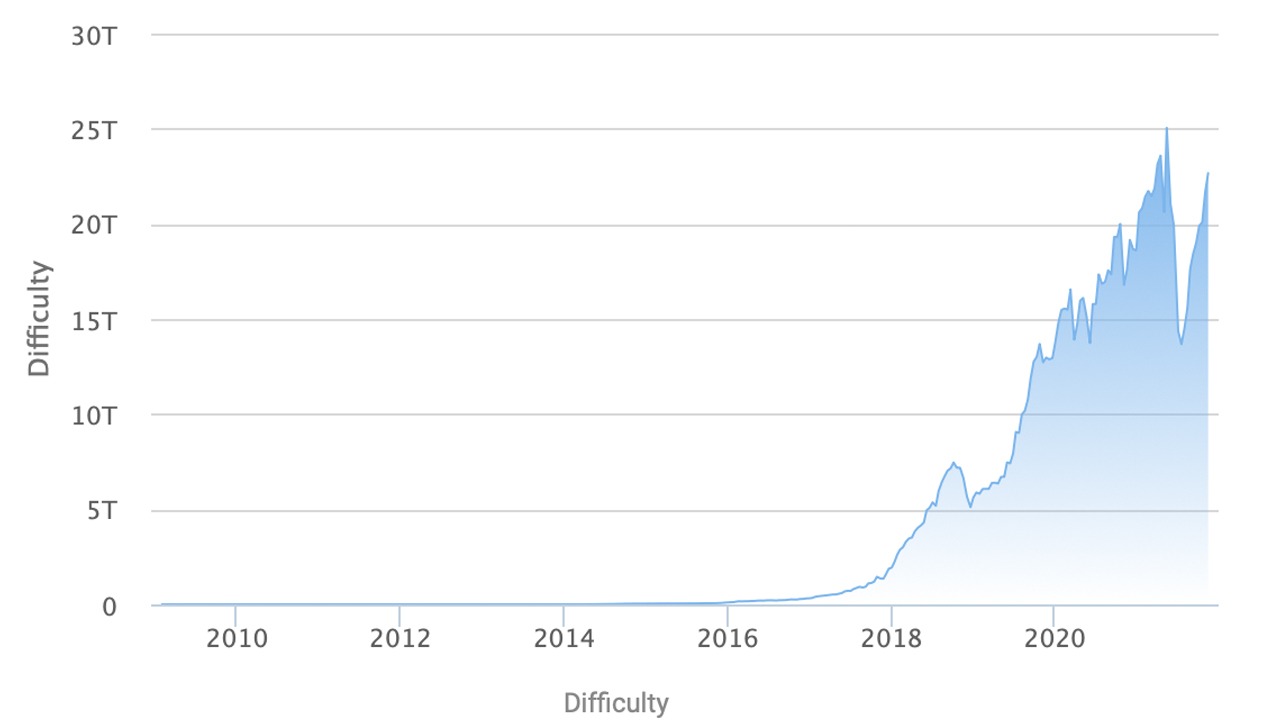During the last 90 days, Bitcoin’s hashrate has been climbing higher and has been slowly nearing the all-time high (ATH) the network captured six months ago in May. The accelerated hashrate has caused the network difficulty to rise, as Bitcoin’s mining difficulty has adjusted upward nine times in a row to date and it’s closing in on the network difficulty ATH recorded six months ago.
Bitcoin’s Mining Difficulty Approaches Lifetime High
Bitcoin’s mining difficulty is approaching the all-time high recorded on May 13, 2021. The network’s difficulty is basically a mechanism Satoshi Nakamoto added to maintain a steady rate of close to ten-minute blocks. Furthermore, the difficulty also makes the entire system stronger security-wise, as a 51% attack becomes a lot more expensive and far more difficult to achieve.

When the hashrate changes, every two weeks, the network takes the change into account, and when the hashrate increases the difficulty to mine bitcoin (BTC) also rises. When the hashrate experiences a sudden dive, like it did at the end of June and during the month of July over the bitcoin mining crackdown in China, the difficulty will also lower. When BTC’s hashrate plummeted this year, the network’s mining difficulty slid by 39.8% in different intervals.
Difficulty Needs to Increase More Than 10% in Order to Capture New Record High
The difficulty’s ATH on May 13, 2021, was roughly 25.05 trillion, and two weeks later it adjusted down to 21.05 trillion. Following July 3, BTC’s mining difficulty slid to a low of 13.6 trillion after it experienced the largest downward difficulty adjustment in the network’s lifetime. That massive downward drop was approximately 27.94% at block height 689,472. Today, BTC’s mining difficulty is 22.67 trillion and getting awfully close to nearing its 25.05 trillion ATH.

The bottom line is bitcoin (BTC) will be more difficult to mine than it was six months ago in a short period of time. The mining difficulty will need to increase by 10.27% from the current position to surpass the May 13 record high. At current SHA256 profitability rates, the odds of BTC’s mining difficulty increasing enough to surpass the difficulty ATH recorded six months ago is far greater. ASIC bitcoin mining rigs such as the Microbt Whatsminer M30S++, Ipollo’s B2, and the Bitmain Antminer S19 Pro still make over $25 per day paying $0.12 per kilowatt-hour (kWh) in electricity costs.
What do you think about Bitcoin’s network difficulty nearing the all-time high it recorded in May? Let us know what you think about this subject in the comments section below.
Image Credits: Shutterstock, Pixabay, Wiki Commons
Disclaimer: This article is for informational purposes only. It is not a direct offer or solicitation of an offer to buy or sell, or a recommendation or endorsement of any products, services, or companies. Bitcoin.com does not provide investment, tax, legal, or accounting advice. Neither the company nor the author is responsible, directly or indirectly, for any damage or loss caused or alleged to be caused by or in connection with the use of or reliance on any content, goods or services mentioned in this article.






